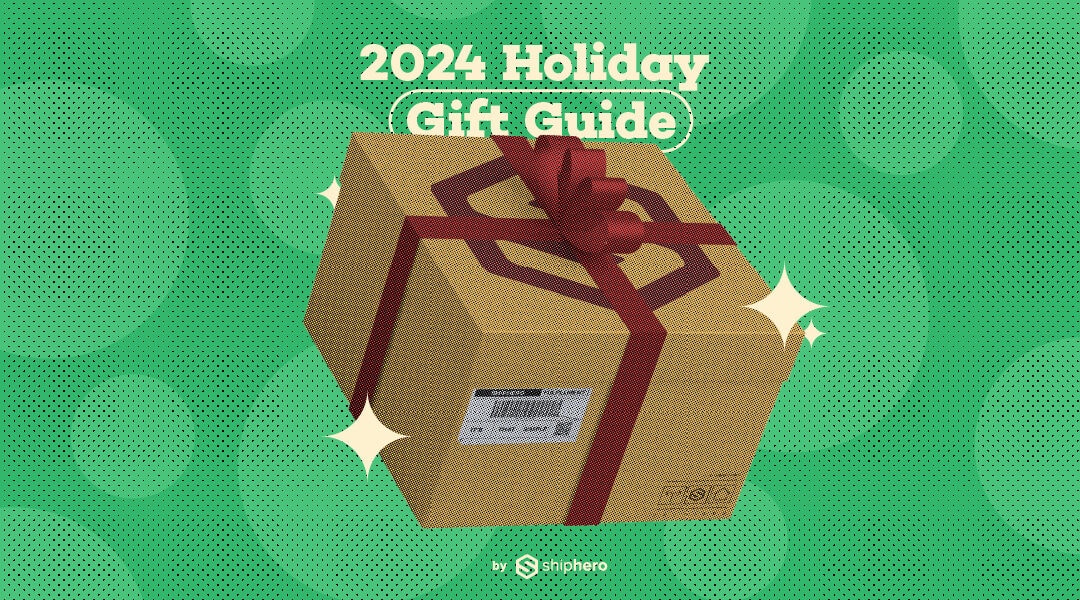
Nov 12, 2024 | Blog
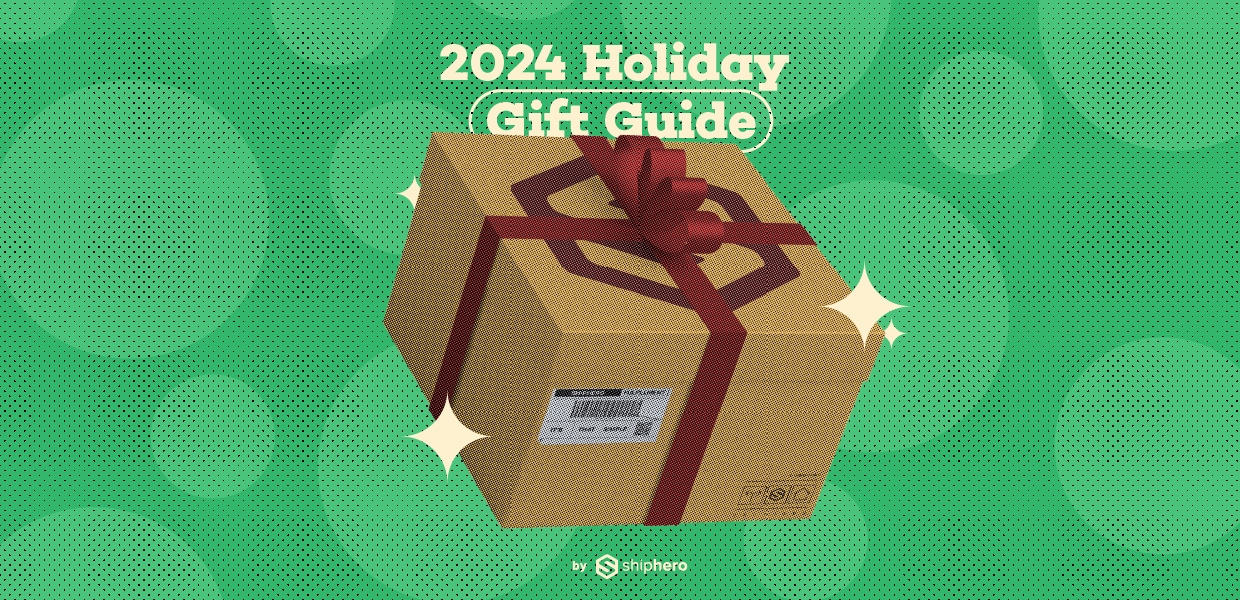
The holiday season is here, and finding gifts that match the drive and creativity of clients, business partners, and teams can feel like a tall order. At ShipHero, we know quality and innovation are key, especially for the leaders and pioneers we’re privileged to work with. That’s why we’ve handpicked a selection of standout items from our trusted partners. Whether you’re looking to surprise someone with a touch of luxury or make their life a little healthier, our guide is here to help you find the perfect match.
Campfire Cycling – Surly Preamble Flat Bar
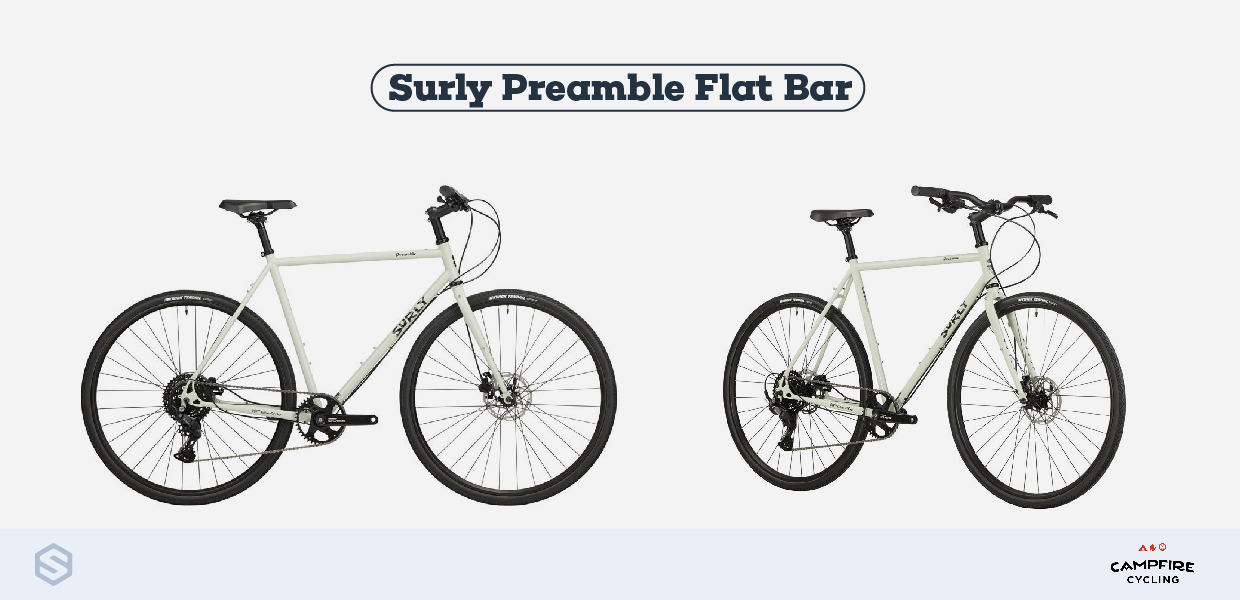
Adventure Awaits with This Versatile Bike
The Surly Preamble Flat Bar is a must-have for the adventurer at heart. This steel-framed marvel offers quality and affordability, ideal for smooth rides and not-so-smooth roads. Designed with durability in mind, it’s perfect for regular commuters or those embarking on their first backpacking trip. Gift the freedom of the open road this holiday season.
Discover the Surly Preamble Flat Bar
Hush – Iced Bamboo Cooling Sheet and Pillowcase Set
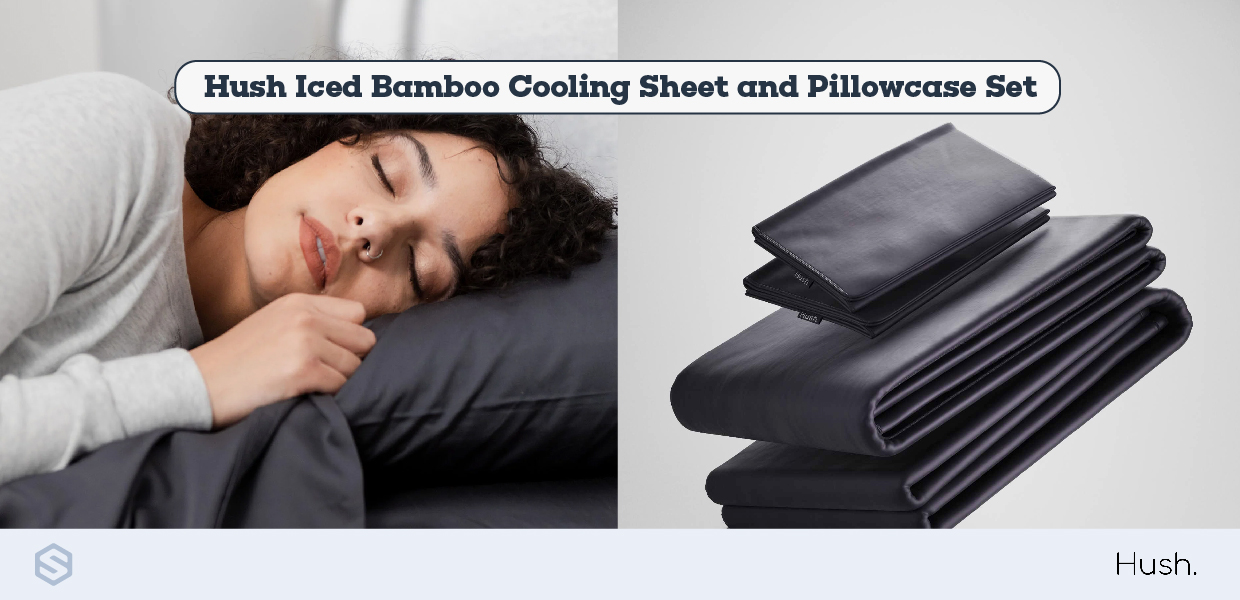
Reclaim Rest with the Ultimate Cooling Sheets
Help someone you care about beat insomnia and anxiety with Hush’s Iced Bamboo Cooling Sheets. Made from sustainably sourced bamboo, these sheets are soft, anti-bacterial, and perfect for hot sleepers. They wick away heat and sweat, ensuring a clean and comfortable night’s sleep. Give the gift of serene slumber with Hush’s innovative bedding.
Check out Hush Sheets
Natura Market – Holiday Gift Shop
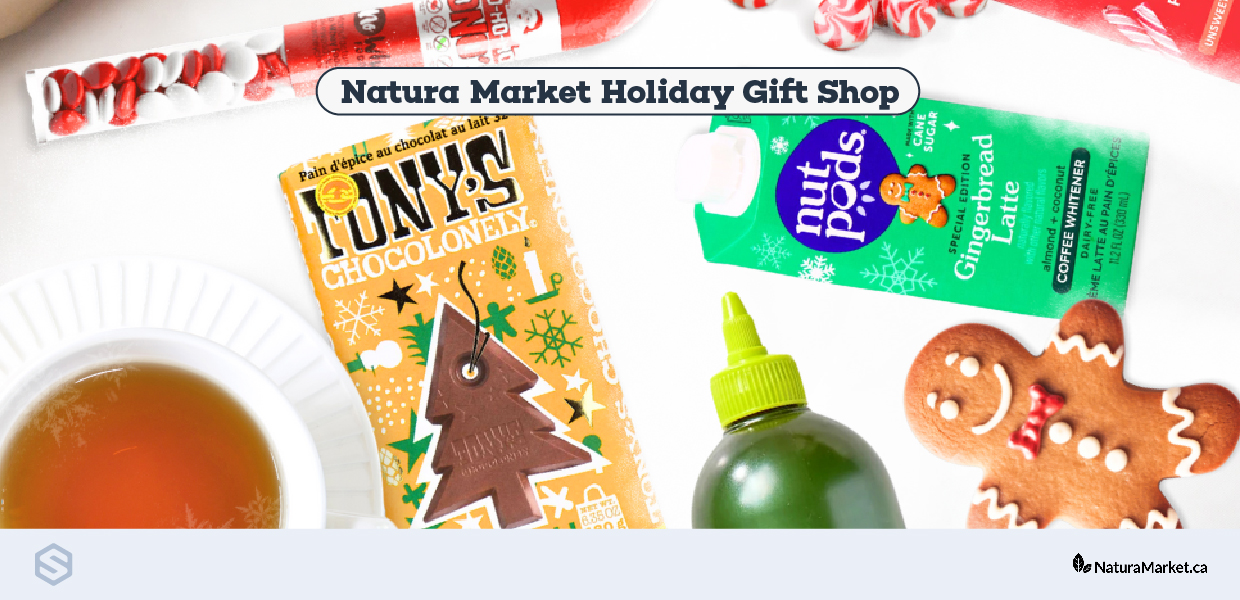
Healthy, Thoughtful Gifts for Every Diet
Natura Market’s Holiday Gift Shop takes the guesswork out of finding unique, diet-friendly treats and thoughtful gifts for health-conscious friends, clients, and colleagues. With carefully curated options that suit any lifestyle, their selection of nutritious, on-trend products ensures that each gift feels special and intentional—perfect for spreading holiday cheer without compromising quality.
Visit Natura Market’s Gift Shop
Red Land Cotton – Basic Sheet Set
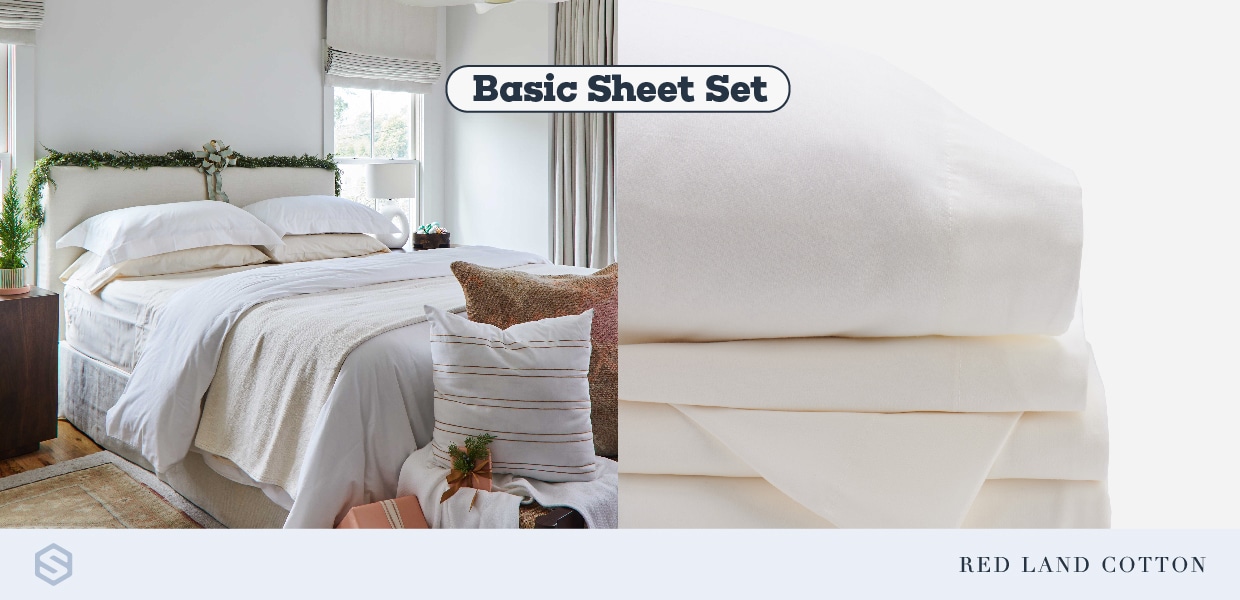
Elevate Any Bedroom with Timeless Elegance
Red Land Cotton brings you heirloom-quality bedding crafted from 100% cotton grown on their family farm in Alabama. These sheets offer a crisp, cool, percale experience that promises a heavenly sleep night after night. Proudly made in the USA, they are perfect for those who appreciate craftsmanship and sustainability. Treat someone to this luxurious bedding set—they’ll thank you every morning!
Explore the Basic Sheet Set
This holiday season, make your gifts as memorable as the relationships you’ve built. At ShipHero, we’re here to help you thrive during peak season with a WMS solution designed to keep everything running like clockwork—so you can focus on what truly matters. Let’s set your business up for an extraordinary 2025 filled with growth, success, and seamless logistics.
Make this your most rewarding holiday season yet.
Schedule a Call Today
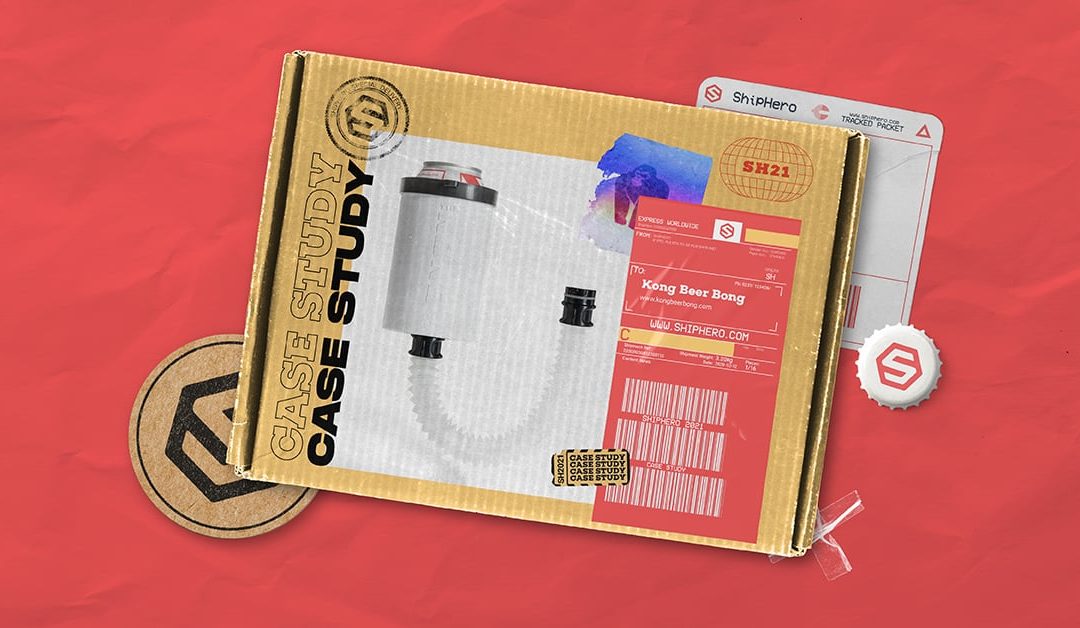
May 14, 2021 | Blog, Case Study
Like they teach in all MBA programs, sales and marketing is a lot like a beer bong. You need to have a large funnel to catch the liquid wherever it’s poured, you need to have a strong and sturdy pipeline that guides the beer to the final destination, and you need a way to properly and safely consume the beer.
No, this isn’t a frat guy’s dissertation; this is the story of how our customer Kong Beer Bong developed a strong product, sales pipeline and supply chain to grow a successful company using ShipHero WMS.
“We were able to save about $60-70k a year by being able to shop carriers other than USPS.”
— Chase Snowden, Head of Marketing and Sales, Kong Beer Bong.
Kong Beer Bong was invented in 2017 by its two founders, Tristan McIntire and Hunter Souders, two college students at The Ohio State University. The pair spent a year of their collegiate journey developing, designing and testing a prototype for the prodigal beer bong, a device so perfect for drinking beer that Sam Adams himself would blush. Not long after, Chase Snowden joined the team in 2019.
After a successful Kickstarter campaign, the website and first shipment of Kong Beer Bong launched in late 2020, and the incredible team landed $3M in sales in under one year. Like all great businesses, they knew it was time to scale their logistics to keep up with the growing demand, and that’s when they turned to ShipHero.
We sat down with Chase Snowden to hear more about their journey, and learn how they used ShipHero WMS to drastically reduce their shipping costs.

Chase, please provide a brief description of yourself and your business
Chase Snowden: “The Kong was invented back in 2017 by the two founders, Tristan and Hunter, while they were in college. The two of them spent the next year designing and prototyping the idea, and were finally able to bring it to life in 2019.
“I met Tristan in 2019, when we were both discovering the drop shipping business model, figuring out how to sell things online, and building an eCommerce business. We had some luck early on, building a website in the “baby” niche that sold a beanbag chair designed to help babies learn to sit up and gain core strength.
“During this time, Tristan found an investor that wanted to put some money behind Kong, which gave us the foundation to pursue growing that product and brand. We launched a Kickstarter in late 2019 so that we could raise some additional capital for the first production run of 3000 units.
“After this successful KS, the first shipment of Kong Beer Bongs landed in February of 2020, and we subsequently launched kongbeerbong.com. Immediately, the results from our FB ads and Instagram shoutouts were amazing, which all lead to us achieving $3M in sales in the first 12 months.”
Sheeeeeeeeeesh. So, what was your fulfillment model before switching to ShipHero?
“Before switching to ShipHero, we used a website called Pirateship.com to process all of the orders. Being a brand with a core hero product and some accessories allowed us to process orders relatively fast because we could buy labels in Bulk and process thousands of orders at once.”
And what was the moment you knew it was time for a switch?
“We wanted to transition to DHL eCommerce and away from USPS. Pirateship only supports purchasing USPS rates, and it also won’t integrate with Amazon, one of our most recent sales channels.
“We also absolutely needed a bulk processing feature. Almost every platform only allows shippers to process orders First In First Out, and it will only let the user try to group orders together by writing different filters based on SKU and quantity of SKU.
“Grouping orders together was something that Pirateship did automatically, so that was the main feature we were looking for when transitioning.”
Why did you choose ShipHero?
“Bulk Ship – period. Not to mention, integration was super easy and painless. A few calls with Mike and the onboarding team and we were set up to start printing labels.”
What advantages have you seen since switching to ShipHero?
“We were able to save about $60-70k a year by being able to shop carriers other than USPS.”
Follow Chase, Tristan, Hunter, and Kong Beer Bong on social media and check out their websites below.
https://kongbeerbong.com/
https://www.facebook.com/KongBeerBong/
Want to be featured in our case study?
If you would like to share with us stories about your eCommerce experiences, whether it’s how you started your business, what opinions you have on the stories we share, or if you just feel like venting… we’re here for you.
Shoot us an email and you could be featured on an upcoming Case Study, our critically-acclaimed weekly news segment The Packet, or if you’re lucky, you could be invited to join one of our many Podcast episodes!
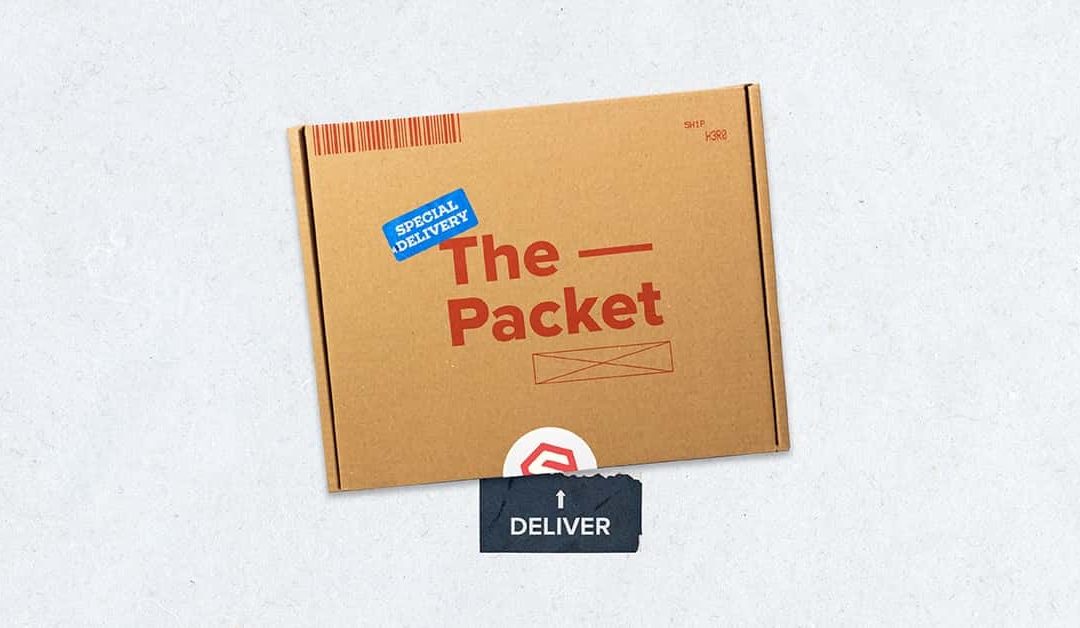
May 14, 2021 | Blog
Every Friday for the past 5 months, a chosen lot of lucky subscribers have received The Packet email newsletter of top e-commerce news and headlines. Together we’ve laughed, cried, and learned. But most importantly, laughed. Now, we’re expanding our audience to all of you!
The Packet’s mission is to get people excited about the world around them, with a focus on spicing up the e-commerce and logistics industry. There are so many stories to share about people who create, people who build, and people who lead. The Packet is your weekly bite-sized chunks of news so you can feel more knowledgeable and confident in the world around you, and also have something to talk about whenever dinner parties are a thing again.
Why The Packet?
With all the sources of news and information out there, who has time to parse through and find truly meaningful content while also trying to grasp whatever the author is saying (or paid to say). The Packet is free, fun and formulated out of love for the e-commerce and logistics industry. No ads, no sponsored segments, completely unbiased, and we love poking fun at Daddy Bezos. (It’s like the Skimm but sometimes funny)
Like a Friend’s montage episode, let’s roll some top stories from weeks past. If you like what you see, join our community of Packeteers every Friday by subscribing here. And be sure to join the conversation on Facebook, Instagram, Twitter, and Youtube.
E-Commerce News and Headlines
The Packet
After tireless digging and tugging, the mega-ton blockage that has been constipating global trade for the past six days has finally been cleared from the Suez Canal. The global trade community has given a collective sigh of relief as vessels are now starting to pass through.
What caused this?
Besides a lack of fiber (kidding), a seasonal dust storm, known as the khamsin, blowing winds at 40 knots caused the Ever Given to veer too far right and become embedded in the canal wall. While this is the story for now, navigation experts and engineers at the Suez Canal Authority are investigating the crash for technical and human error — this could have massive insurance implications and lawsuits if a responsible party is identified.
How did they get it out?
A full moon emerged (you can’t make this up) and brought in a high tide that buoyed the engineers efforts to refloat the ship. If this attempt failed, the tide would have fallen and they would have been forced to spend weeks unloading thousands of containers to help the Ever Given sit higher in the water. In total, hundreds of thousands of cubic feet of sand were removed.
The Fallout
Shipping operators estimate $12 billion of cargo is stranded along the 120-mile canal or idling outside it. Other shipping operators have already re-routed ships around the Cape of Good Hope, adding weeks and fuel consumption to the voyage. Experts estimate that this will result in another jam once all the vessels reach their destination at the same time, and over 360 vessels are waiting to pass through the canal. As a result, shipping and oil prices have risen, and the already beleaguered logistics industry will likely face additional delays and costs.
This post has been sponsored by: MiraLAX. Blockage in your canal? MiraLAX.”
Walmart announced that they will be repurposing one North Dallas location into a fulfillment center dedicated entirely to online delivery and curbside pickup, with no more in-store shopping. As a proverbial canary in the low-price coal mine, this could signal a permanent shift towards local delivery and curbside pickup over conventional brick-and-mortar shopping.
>>Busch Beer is for the dogs
Tired of sharing your beer with your dog? Busch Beer has announced a contest to hire a doggo “Chief Tasting Officer” for its popular Busch Dog Brew, and the winner could take home $20,000! To enter, post a picture of your pooch on social media with the hashtag #BuschCTOcontest… so animal services can come pick them up. JK sounds fun, good luck.
Where to Read the Latest E-Commerce News
For the entrepreneurs who like to stay on top of trends, for the curious who love to have a global world view, and for the intellectuals who live on the edge of levity, The Packet is for you.
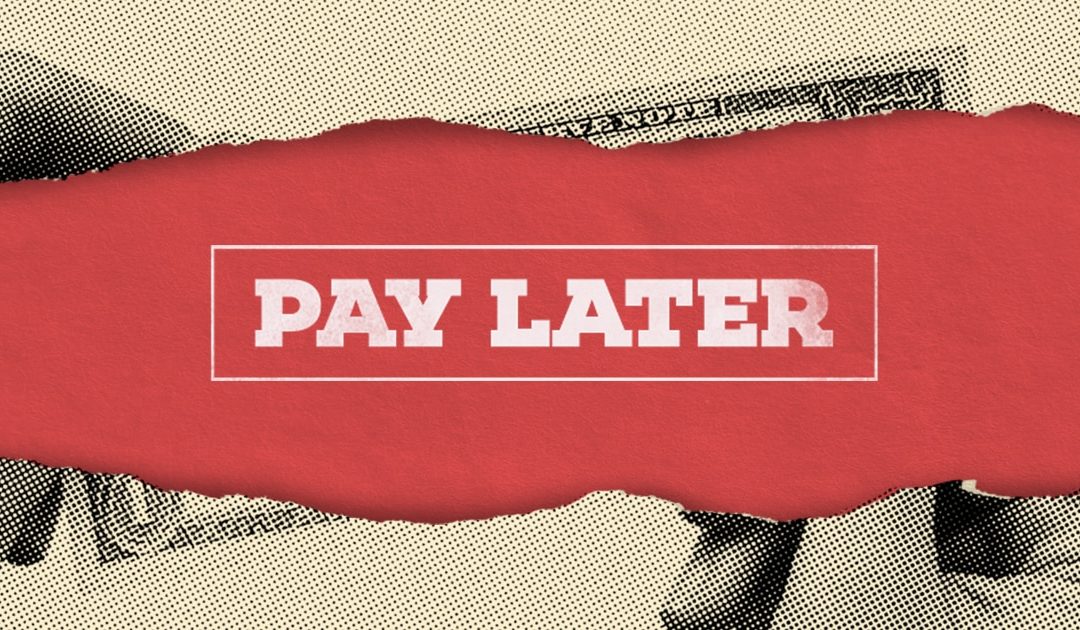
May 13, 2021 | Best Practices, Blog, Warehouse Management Software
A dollar now is worth more than a dollar tomorrow. That’s the underlying principle behind some of our greatest financial instruments, such as interest rates, credit, loans, and even insurance.
Today, we see companies that allow customers to “buy now, pay later” are experiencing increased online sales and reduced cat abandonments by offering more flexible payment options. Customers are also more likely to purchase high priced items when they can split up the payments and pay them off over time.
You may have seen it through Amazon checkout, Paypal or Apple Pay, where you can select to pay an amount over the course of 4 payments (i.e., the Pay in 4) with no interest payment. This allows you to work solely with your trusted payment provider instead of opening a line of credit with a company.
But what is the Buy Now, Pay Later payment method? Should your business offer this? Let’s dive in.
What is Buy Now, Pay Later?
Finance technology has reimagined the concept of layaway — putting something on layaway means a retailer would let a customer pay in installments, and finally take home the item when the debt was paid in full. Now, customers can receive the product while they pay off their interest-free loan using the “Buy Now, Pay Later” payment method.
Yes it is still a loan, but consider it a micro-loan where companies like PayPal vouch for you to pay the installments in exchange for a small transaction fee to the merchant. The two types of Buy Now, Pay Later loans are:
Merchant Transaction Fee Loan
This point-of-sale loan charges the merchant a transaction fee, and offers the customer a loan at no interest. Examples include payment methods offered by Klarna, Splitit or AfterPay.
Is this for my business? This type of loan is typically offered by larger merchants whose margins can absorb the transaction fee for the sake of vastly decreasing cart abandonments and increasing order volumes.
Shopper Interest Loan
Conversely, this point-of-sale loan is offered to a customer by a third-party with a contractual down payment and interest rate, whereas the merchant pays no fee. The customer can receive the item immediately, but must pay installments plus interest.
Is this for my business? This type of loan is typically offered by retailers with higher value items. Because potential loss is more detrimental to a business with high value items, loan companies charge customers an interest rate for the increased risk.
Customer Benefits of Buy Now, Pay Later
The customer benefits for offering Pay Later services include:
Increased Sales and Order Volume With Buy Now, Pay Later
Customers are more likely to purchase items when the payments are spread out over time. With tight budgets, customers would still be able to purchase an item even if they don’t have the money at the time of purchase, as long as they are confident that they will be able to pay the bill over the course of the month.
Given some countries reliance on credit (e.g., United States), a customer would be especially more likely to purchase higher priced items when the payments are split into reduced sums.
Not to mention, if you are the first of your competition to offer Buy Now, Pay Later services, this could become a competitive advantage and attract more customers to your brand.
Decrease Cart Abandonments by 6%
According to recent studies, 6% of cart abandonments are caused by a lack of payment options. If your website has high traffic volume, this could spell thousands of dollars in lost revenue. In today’s realm of e-commerce, your shopper journey must have every consideration in mind. Offering more flexible payment options allows you to stay competitive.
This also simplifies the checkout process, because customers don’t have to enter their card details or billing information; instead, they just need to log in with their payment provider (e.g., PayPal, Klarna, etc.). By logging into a payment provider, customers may also feel more secure about not having to share their personal data with the company.
Improve Return Experience and Build Trust
Buy Now Pay Later fits seamlessly into your product return experience. While many customers are not able to sample or try products, they can now take your products for a test drive without committing financially. This simplifies back-end accounting and budgeting.
How to offer Buy Now, Pay Later
You can affiliate with an app that offers “buy now, pay later” services, like the free Klarna application that offers Pay in 4 options, partners with global retailers, and offers reward programs for users.
You can also integrate your checkout process with a Buy Now, Pay Later service. According to G2, the top Buy Now, Pay Later services are:
- FuturePay: FuturePay is a payment option that lets your customers buy now and pay later – without a credit card.
- PayPal: With PayPal credit card processing (Payments Standard, Payments Pro, or PayFlow) you can accept all major payment types from your customers right on your site. Simple checkout buttons or fully customized online checkouts enable scalable solutions for businesses of any size.
- GoCardless: GoCardless is an online payment tool that makes collecting by Direct Debit easy for everyone from individuals to large corporations at 1% fee per transaction.
Wrap It Up
The Buy Now, Pay Later payment method gives customers flexibility, and allows merchants to offset risks and protect themselves from loss in the process. The Buy Now, Pay Later method increases customers’ likelihood of purchasing items, especially those of higher value. If your competition is already using this option, it may be a good time to look into it for your business.
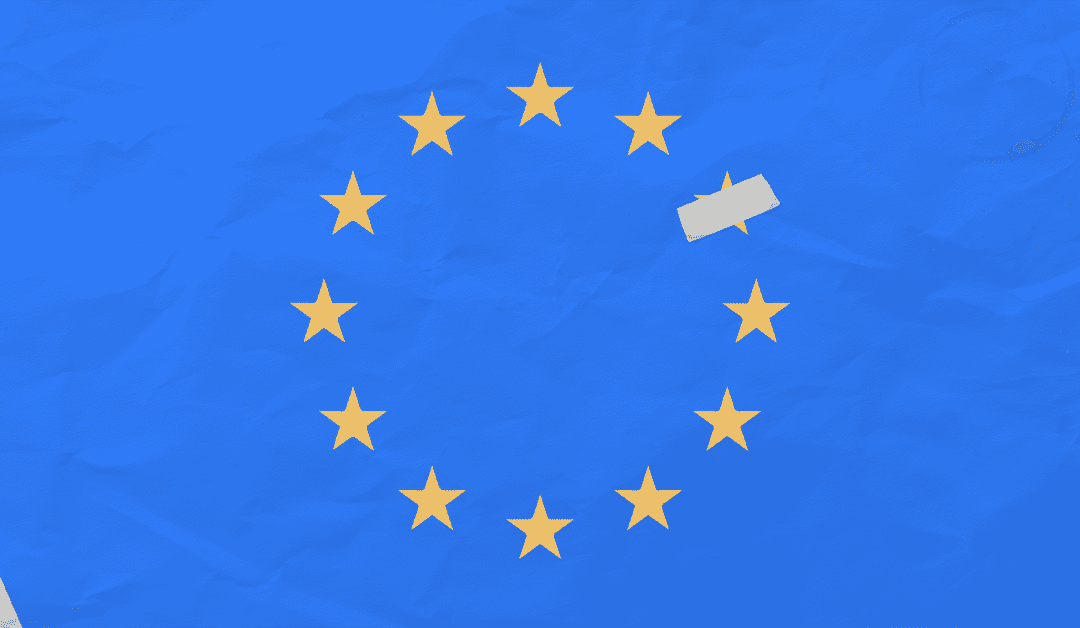
May 11, 2021 | Blog
It’s official, Harry and Megan have left– what? Oh, the other Brexit? Okay, take 2.
It’s official, as of January 1, 2021, e-commerce businesses that ship products to and from the United Kingdom must comply with a slew of new regulations, customs requirements and duties.
Failure to comply could land you with royal consequences like products blocked at customs, surprise fees and fines, and frustrated customers that never got their product or paid unexpected customs fees.
If you can wait until July 1, 2021, they’re changing the trade rules to make it easier for e-commerce businesses to comply with the customs rules.
In this article, we’ll dive into Brexit’s overall effect on your business operations, and the 4 things you need to know when shipping to and from the UK. Also, be sure to check out the Brexit Checker for a personalized checklist.
The Brexit Effect on eCommerce
Want the good news or the bad news? Let’s start with the good news:
Increase in UK Exports
Experts predict that, like Boris Johnson on a diet, the British £ will drop, causing products from the UK to become more affordable for international consumers, and thereby increase exports of British goods. Okay, to the bad news…
Slower Delivery Times
Supply chains are expected to struggle during the transition period, as all relevant parties adjust to new protocols and custom clearances. This is expected to cause significantly slower delivery times and increased product loss/damage in transit, because the more hands involved, the more likelihood for human error. And finally, le pièce de résistance…
Increased Shipping Costs
When shipping into or out of the UK, additional tariffs on goods will either eat into your margins, cost your customers, or a bit of both. Not to mention, because the customs landscape is complex and varies by state, giving your customers clear custom fees is hardly possible, until July 1, 2021. As a silver lining, customs duties could encourage more local consumerism in the UK.
Complying with Post-Brexit Trade Rules
Here are the four logistics-related tasks to consider on your journey towards compliance with UK’s new trade rules:
- Register VAT / manage inventory
- Prepare for customs
- Handle shipping costs
- Update policies
Register VAT / Manage Inventory
A VAT number is a value-added tax identification number, and you need one to conduct business in the EU and the UK. The only way to get a VAT number is to register with a country’s tax authority.
UK sellers need to register with each country in which they sell. On July 1, 2021, this requirement goes away with the one-stop-shop rules. Due to the added complexity and increased tariffs, some UK sellers are finding it financially beneficial to move a portion of their inventory to EU warehouses.
EU, US and other country sellers that ship orders to the UK below £135 need to register their business for a VAT with HM Revenue and Customs. Similarly to UK sellers storing inventory abroad, international sellers that conduct a large portion of business in the UK should consider moving inventory to UK warehouses to avoid tariffs and fees.w
Be sure to contact your country’s tax authority or a local tax professional to understand how VAT rules impact your business.
Prepare for Customs
Regardless of where your company is based, clearing customs in the EU requires an Economic Operator Registration and Identification (EORI) number, which uniquely identifies an exporter for customs.
Now, you need an additional UK EORI — register for your UK EORI with HM Revenue and Customs. Customs declarations could include the following information:
- EORI number.
- VAT amount
- VAT registration ID
- Harmonized code, country of origin, description of contents, and total value of products/parcel
Handle Shipping Costs
Additional tariffs will be implemented between the UK and EU, and there are two choices when deciding who pays the bill.
Delivered at Place (DAP): The customer pays any import costs, the seller is only responsible for shipping the product.
Delivered Duty Paid (DDP): The seller pays any and all import costs.
When making this decision, consider your margins and what your competition offers. You can consider building it into the product price, or even discounting the import cost on orders above a certain threshold (e.g., free shipping/import fees on orders over $50!)
In the case of product returns, customs and taxes can be refunded but asking for a refund from custom agencies is complex, so consider that when moving to the final step below.
Update Policies
When you have made your shipping decisions, be sure to update your shipping policy and your returns policy to set customer expectations.
Shipping Policy
Make it very transparent whether your business or the customer is responsible for paying applicable customs fees and import taxes. If you pay (DDP), you can advertise the coverage as a competitive advantage; conversely if the customer pays (DAP), the customer will not be upset when unexpected fees are assessed after checkout.
Return Policy
If your customer pays the cost of any duties and taxes, clarify whether the collected import taxes and duties can be refunded in the case of a product return. While it is possible to get a refund, you’ll have to go through shipping carriers who paid the custom agencies directly. Headaches ensue.
Wrap It Up
Navigating global e-commerce is tough, and Brexit has thrown yet another wrench into the machine. But as an entrepreneur, you’re used to solving problems by now, either on your own or leveraging your network. That’s where a trusted partner in global logistics and order fulfillment should come into play. Find someone with experience in navigating the increasingly complex global logistics landscape to get set up for success.










